(originally posted December 29, 2009)
True story: The Wench has a tendency to get star struck. But the “celebrities” in my world are the typical “celebrities” for the rest of our society. Forget Brad Pitt, I am completely enamored with amazing chefs, fabulous winemakers, crazy brewers and the biggest beer geeks in the industry. If I was a 13 year old, my room would be full of posters of people like Dr. Bill, Sam Calagione, Michael Jackson and Ray Daniels.
Speaking of Ray Daniels …
I first learned about the Cicerone Program in the Spring of 2008 while I was visiting Chicago. At that time, my blog was relatively new and my overall beer knowledge was beginner at best. Nonetheless, the program was intriguing and I always kept it in the back of my mind.
Fast forward a year. Being the awesome stalker that I am, I was one of the first beer to discover Ray Daniel’s presence on Twitter — @Cicerone_Org. Naturally, I bombarded him full force with all of my wenchness. I can only assume that Ray was extremely apprehensive at first. But, as with all my Twitter stalking victims, he realized that it is easier to concede to the cunning and forceful ways of The Wench than try to ignore her.
This past September, I had an awesome opportunity to take the Midwest by storm and play “guest of honor” at The Great Lakes Brew Fest. The trip brought me to the city of Chicago for a few days. And after countless emails requesting to meet for a beer (or two … or five), Ray finally succumbed to my bewitching — errrr aggressively persistent ways and agreed to meet me at Hop Leaf for dinner.
Although the conversation that night was relatively light, I was completely blown away by Ray’s level of beer knowledge. To this day, I think that Ray Daniels is the foremost knowledgeable person on beer that I have had the honor of meeting. In fact, I’ve been rather enamored by him — on a strictly professional level, of course. (wink wink).
My old goal used to become the “female version” of Michael Jackson. Now, I think my goal has been slightly altered. I want to be the “female version” of a Michael Jackson/Ray Daniels hybrid. Maybe one day you will see The Wench teaching at Siebel. Hey, you never know!
I’m proud to say that I recently passed the first level of the Cicerone Certification Program — aka Certified Beer Server. My goal is to reach Master Cicerone Level by the time I reach 30, which is coming up sooner than I’d like.
Well enough about me, right? I’m very proud to introduce you all to THE ONE, THE ONLY … RAY DANIELS!!! …
(photo credit: Matt Taplinger © 2008)
RAY DANIELS INTERVIEW
Full name: No one knows that! Ray Daniels will do, although I will say that my given name is Ray and not Raymond.
Twitter handle: @Cicerone_Org
Current location: My desk, Chicago, IL
Background “Snapshot”
1. Where did you grow up?
I started 9th grade at my eighth school due to the fact that my father was in the US Army. I came to consciousness in the small town of Alamagordo, NM and when I went to college and lived in the same dorm for four years, that was the longest I’d ever lived anywhere. Along with way, we spent time in Fort Irwin, CA (near Barstow); San Antonio, TX; Enid, OK; Indianapolis, IN; El Paso, TX and finally Montgomery County, MD—near Washington DC.
2. What sports if any did you play growing up, through college and beyond?
I made one attempt each at baseball and football during my grade-school years and sat on the bench during basketball season for two years in junior high before finding distance running to be more in line with my aptitudes. In high school I ran cross-country and track for two years with fair success, but I didn’t stick with it. In college I did a bit of intercollegiate fencing (saber). After 20 years of country club sports (golf & tennis) as an adult, I returned to endurance sports in my 40s and I completed several marathons and a number of triathlons including the 2003 Wisconsin Ironman. I did a bit of outdoor adventure racing during this period as well.
3. How old were you when you had your first beer?
Not quite 12 years old.
4. If you can recall, what is the story of your first beer? Where did you have it? What style and brand was it?
The very first beer I can remember drinking was given to me by my father in a hot parking lot shortly after the 1969 Indy 500. I suspect it was a Schlitz (his regular brand at the time) and that it was dispensed in hopes of knocking me out to staunch my complaining.
5. Where, if applicable, did you go to college? What did you study? What additional activities, organizations, sports did you partake in during college?
I matriculated at what was once known as the agricultural and mechanical college of Texas, better known these days as Texas A&M University. I began as a biochemistry major and in fact got my BS in that field. But the many activities and opportunities of a major university were too much for me to resist.
I began writing for the campus newspaper during my first semester and running programs for the student union (the MSC for you Aggies out there) by my sophomore year. Soon I had declared a second major in Journalism so that I could take their courses in writing and reporting and by the time I graduated, I had as many hours in English and Journalism as I did in Chemistry and Biology. I flirted with politics, both campus and real-life but never really connected there.
The “business” of running events and activities was my forte and by my senior year, I was president of the MSC overseeing a wide range of campus entertainment and cultural activities. This experience inspired me to pursue an MBA which I later completed at Harvard Business School.
Craft Beer Epiphany
Every craft beer enthusiast has at least one pinnacle craft beer experience that completely changes ones perspective on beer. I refer to this mind-blowing moment as a “craft beer epiphany.”
1. What was your first craft beer epiphany? Recall as many details about it as you can:
My first Samuel Adams Boston Lager. Mind you this was about 1987 and green bottle beers like Beck’s and St. Pauli Girl were still high-brow fare for regular beer drinkers, especially in the East and Midwest. I was in Washington DC on business for the Chicago-based pharmaceutical company I worked for and checked into a small hotel. With nothing else on my agenda, I headed to the bar for a beer and saw table tents for Sam Adams.
I was surprised that there was an American beer brand I hadn’t heard of; more surprised that it was from a recently started brewery. Being the type who wanted to know all I can about things that interest me, I ordered one without hesitation. I don’t know that I can honestly tell you _what_ I tasted in that first glass, but I do recall being amazed at the flavor—that it had flavor, for starters—and that it tasted really good and distinctly different from anything else I had had before. I was impressed.
2. Have you have additional craft beer epiphanies since the first? Detail as many of them as you wish:
I’m still having revelatory moments related to beer. They may be small, but they still register. Little surprises sometimes come from a new brewer or just a new beer, but nearly every month I have something that I count as a taste discovery. Some have settings and even sometimes plots; others come as soft explosions at my kitchen counter with no one present but those in my Twitterverse. Often I can’t recall them when prompted (like right now), but they come back to me when they are useful like while I’m teaching, brewing or judging.
Beer Talk
1. What are your top 3 favorite beer styles?
IPA is without question #1. Saison and Dubbel are probably 2 & 3 today. A lot of factors influence that, including what is currently being made well and available fresh. That changes over time.
2. What are your top 3 favorite breweries?
Bells, Lost Abbey and all the others.
3. If you could work with or for any one brewery, which one would it be and why?
The one brewery that I’ve ever visited and came away feeling that I would gladly chuck my life and go to work for doing anything they had available was New Belgium. Most of all, I feel they are an incredibly well-managed company. When there’s a problem, they solve it rather than learning to live with it or overlooking it because it would be inconvenient or uncomfortable to deal with. They have values as part of their corporate goals and they put time, money and risk behind implementing those values in their business. They seem to value and respect the people who work for them. And of course I love Colorado, so that’s a bonus.
4. Are you a homebrewer? If yes, what is the most unique and interesting beer recipes you’ve brewed as a homebrewer?
Yes. I’ve made some weird stuff, not all of it drinkable. Sake—the Japanese rice wine. I made some once but it turned out with a sort of green tinge. I was too afraid to drink it. A Ryeizen or Roggenbier—with 67% rye malt that took 6 hours to lauter. I don’t recall that it was worth the effort! Kvass—a 2% abv refresher from the Slavic lands—actually tasted pretty good when consumed about 48 hours after pitching. Probably the best beers I’ve made have been a Kolsch, a pilsner and some orange mead. These were all made in the early 90s when I was doing a lot of brewing. I think frequency plus mastery are the conditions that allow anyone to make good beer consistently.
5. What is your favorite beer and food pairing?
Every pairing is an adventure to enjoy. And in a sense it is a constant journey as the truly fantastic ones have a way of passing from my memory within a week or two, like punch lines to good jokes. (I can never remember the really funny ones.) I just visited my parents in southern New Mexico for Christmas and we enjoyed tamales with mole sauce for lunch both days I was there. I would have loved to have tried some Dogfish Head Indian Brown Ale with that—or maybe some Chimay dubbel.
6. In your opinion, what are some of the best resources for people learning about beer? Books? Websites? Programs?
Of course, I’m partial to certain books I’ve written and classes at the Siebel Institute and through the Cicerone program. Probably the two books I recommend most are Randy Mosher’s “Tasting Beer” and anything by Michael Jackson (soft spot for Great Beers of Belgium, sixth edition which I published for the Brewers Association after Michael’s death).
7. What are your top 3 favorite beer blogs/beer websites?
Stan Hieronymus’ AppellationBeer.com is top of my list and I also like Jay Brooks’ BrookstonBeerBulletin.com and Tom Cizauskas yoursforgoodfermentables.com. All three are people I’ve known for a long time and respect and I enjoy what they have to say. That said, I’m open to new voices but don’t have a lot of time to troll for them. And of course I tend to hit blogs via Twitter links posted either by the author or someone who reTweets it.
(photo credit: Matt Taplinger © 2008)
The Professional Side
1. How long have you been working in the beer industry?
I’ve been self-employed since 1990 and did a lot of volunteer stuff in the beer world when I was still running a PR agency and getting started with beer. In 1996 I made the shift to beer as my business and my motto that year was “all beer; all the time.” I haven’t done much of anything else since then.
2. What was your first “real” job in the beer industry?
Kind of hard to say since I was self-employed. Creating and running the Real Ale Festival starting in 1996 might count. Writing regularly for publications from All About Beer to Zymurgy was happening at about the same time. But the first time I had a job description and got a regular check every month wasn’t until December 1999 when I was hired by the Brewers Association to edit Zymurgy and The New Brewer.
3. What beer certifications and credentials do you have?
BJCP National Judge (1993?)
Siebel Diploma Course in Brewing, Winter 1995
Herriot-Watt Graduate Program in Brewing & Distilling (I took key courses, but didn’t complete the diploma program.)
4. How many years have you been teaching at Siebel?
That started about five years ago when Randy Mosher and I created the Master of Beer Styles program. Since then, I’ve created additional courses and been asked to teach portions of nearly every course they offer under Siebel and World Brewing Academy.
5. What courses, if applicable, do you specialize in at Siebel?
The three big ones for me are:
- Master of Beer Styles (& Evaluation)
- Start Your Own Brewery
- Siebel Advanced Homebrewing Course
6. Outside of Siebel and Cicerone, do you teach about beer anywhere else? If so, where and what do you teach?
I do some custom training for distributors and retailers occasionally.
7. How many books have you published? What are the titles of said books?
My bio currently says that I have “written, edited or published more than a dozen books on beer.” That’s a lot easier than giving all the gory details of what I did for every book that lists me in the credits or on the cover. Here are some of those details:
Author (or co-author) of:
- Designing Great Beers
- 101 Ideas for Home Brew Fun
- Brown Ale (with Jim Parker)
- Smoked Beers (with Geoff Larson)
- The Perfect Pint
Editor of The Brewers Association’s Guide to Starting Your Own Brewery
As the publisher for Brewers Publications from 2001 to 2008, I was the “acquisition editor” and overall publisher on all of the following:
- Standards of Brewing, By Charles Bamforth
- The Compleat Meadmaker, by Ken Schramm
- Radical Brewing, by Randy Mosher
- Farmhouse Ales, by Phil Markowski
- Wild Brews, by Jeff Sparrow
- Brew Like a Monk, by Stan Hieronymus
- How To Brew, by John Palmer
- The Best of American Beer and Food, by Lucy Saunders
- Brewing Classic Styles, Jamil Zainasheff & John Palmer
- Michael Jackson’s Great Beers of Belgium (6th Edition), by Michael Jackson (posthumous)
8. How long have you been a BJCP beer judge?
I first took the exam in the fall of 1990 and had accumulated enough points to become a National judge by 1992 or 1993. (I did a lot of organizing and judging at national events.)
9. What is one of the most disastrous experiences you’ve had as a beer judge?
I can’t recall anything really awful. Although if you over do it the night before, it can certainly be challenging. These days I don’t hesitate to use a spit cup anytime I feel I need to reduce my alcohol consumption during judging.
There were years at GABF when I was training for the Chicago Marathon (which is run in October) and I would get up at 5 am to go run 8 or 10 miles before hitting a big breakfast and then judging all day. I don’t think I’d try that now!
10. What is one of the coolest, landmark experiences you’ve had as a beer judge?
Probably the most fun was a casual judging I did with Michael Jackson at a competition in Minneapolis (at the old Sherlock’s Home). Michael and I and another judge (Steve Hamburg maybe?) stood in front of a dining room full of homebrewers with microphones and tasted the best of show beers, commented on them and selected the winner. I remember it in part because Michael recommended my book to the assembled homebrewers—a very big deal for a first-time author!
CICERONE
1. How long have you been running the Cicerone Certification program?
Since its inception! We began administering exams on January 1, 2008, but I’d been developing the idea for nearly a year before that.
2. What was your inspiration for starting the Cicerone program?
Bad beer. Or rather bad beer service. I had had enough of servers—and often times managers—who didn’t know the first thing about the products they were serving or the draft systems they were using.
3. Why did you choose the name Cicerone?
First of all, I needed a unique word in order to be able to create a certification trademark. People can’t earn the exclusive right to use some title if the title is common and unprotectable. Second a lot of people in the beer business had told me they didn’t want to play second fiddle to the wine world and that I should stay away from any use of the word “sommelier”—which was something I agreed with.
So I started looking for a word and several things coalesced when I found “cicerone.” I had been looking, making things up and creating some really awful labored constructions (how about being a “Marquis de Cereviseae”?) before I found it. I knew what I wanted, but couldn’t get a grip on it with a single word.
Then when I saw “cicerone” in a thesaurus, I knew, literally right away, that was my word. What I saw immediately was the literal meaning: a cicerone is a “knowledgeable guide to arts and antiquities.” What better name for someone who is to be a knowledgeable guide to the ancient art of brewing? I was hooked on that alone. But there was a subliminal effect that I didn’t figure out until much later that I’m sure played a big role in my immediate and visceral reaction to the word.
“Cicerone” and “sommelier” have some linguistic similarities in that they both start with a sibilant “s” sound and take three syllables to pronounce (at least the way I say them). Finally, they are both words of foreign origin. I liked the faintly exotic feel of “cicerone,” but I loved that it was not French and also that it was not German because I didn’t want to be closely associated with either of those given their positions in wine and beer respectively. The Italians are known for their love of great food and great beverages and there’s even a craft beer movement in Italy, so I loved the fact that the word came from Latinate roots.
Finally: the word has a history in English. The Brits have used it for 400 years and you can find it in English dictionaries, but it is pretty unknown among anyone who doesn’t do crossword puzzles.
4. How is the Cicerone program different from all the other beer certification programs?
Well, there’s a judge certification program called BJCP here in the US. They focus on giving homebrewers feedback about their beers: stylistic adherence, brewing faults, etc. They assume a homebrew setting and focus on what the brewer CAN control. Our program looks at commercial brewing and for the most part, at what the brewer CAN’T control—like how the beer is stored and displayed and poured and paired. Mind you, there is some substantial overlap between BJCP and Cicerone with regard to styles, flavor and brewing process and ingredients. But the Cicerone program also gets into draft systems, bottle pouring, beer handling and storage and of course beer and food pairing.
As you know, I’m a veteran of the BJCP and still accumulate points every year in their program so that I’ve been an active judge for nearly 20 years. It is a great program, but we have different goals. What Cicerone does is to focus on people who sell and serve beer for a living: bartenders, wait staff, sales reps for distributors and breweries. Basic servers don’t need to write essay questions to be able to present a beer at tableside so we give them a multiple choice exam. At the same time, there’s a ton that an expert on beer could—and should—know that goes beyond off-flavors, style knowledge and judging skills so we have exams that cover those topics in progressively challenging forms for the second and third levels of the Cicerone program.
5. What does it mean to be a Certified Cicerone?
That’s easy: it means that the individual has demonstrated mastery of a specific syllabus of knowledge related to beer. That knowledge-base is published on our website in the “Master Syllabus” and the full criteria are given in our description of the three levels. The Master Syllabus runs about 19 pages in outline format and we make it available to anyone who wants to view it without restriction and we constantly solicit feedback on it from people in the beer and retail service industries. That syllabus is our “holy grail”—the starting point of everything we do and all that we are trying to do in terms of improving beer service.
6. What are you goals for the Cicerone — what do you hope to see it become in the coming years?
First is to improve the quality of beer service nationwide. Everyone who touches beer from the packaging line to the customer’s mouth needs to understand the ways that they can ruin beer and be motivated to keep it tasting great. The further you get away from the brewery, the more real abuse you see for beer. The Cicerone Certification Program seeks to improve beer handling & serving knowledge in all those places where it is lacking today.
Second is to improve the actual quality of the interaction between customer and server. That means giving servers the tools they need to inform consumers about beer in useful ways—whether that consumer is just discovering beer or has 20 years of experience exploring it.
Finally—and in some ways, most importantly—we want to avoid creating a snobbish atmosphere around beer. I hope that everyone who participates in the program will understand that there is a lot to know about beer and that no matter what level they have achieved as a Cicerone, there is still more to learn, more to explore, more experience to gather. Indeed, one of the greatest things about Andrew Van Til, our first Master Cicerone, is that exact attitude—the fact that he knows that there is still more to learn even for him and that he is open to those experiences.
The Personal Side
1. What is your current day job?
Director, Cicerone Certification Program.
2. If you could change your career at this very moment, without any restrictions on what you could do, what would you want to do and why?
I’d make Certified Beer Server certification mandatory for all servers in all bars in America—scratch that, the world! (And Certified Cicerone would be mandated for all distributor and brewery sales people as well as retail beverage managers.)
3. Are you married? Children?
No & Yes. I have two great kids, one in high school and one in college. Both are doing great things with their lives and I really enjoy spending time with them and their friends.
4. Outside of beer and writing, what are some of your other hobbies?
I like to make things from dinner to furniture. In recent years I’ve done some welding. Output included a coffee table, a tandem bike and a wrought-iron cross. I’m involved with some electronics currently (Arduino anyone?)—although that may turn out to have beer applications. Photography comes and goes. When I’m not working so darn hard, I like to kayak, orienteer and otherwise be active outdoors. Lately, I’ve been riding a unicycle from time to time around my neighborhood, just because I can. I have done some flying and hold a private pilot’s license in gliders but I haven’t done much with that now that I’m not spending time in Colorado.
5. Who are some of your greatest mentors in the industry?
That’s an interesting question. At this point, the people who I may have considered mentors at one time I now consider to be colleagues. John Hall from Goose Island has certainly always been a good source of thinking and advice, but we’ve worked together on so many things over the years and had so many different relationships as a result that the flashes of avuncular mentoring that went on were always mixed with a need for him to take care of his own business. And that’s kind of the way it is when you are self employed—and maybe when you are in the beer business. People are friendly, supportive, colleagial—but they have to look out for their own interests, do their own work as well. Others I’ve had rewarding relationships with include Charlie Papazian, Michael Jackson and Fred Eckhardt.
6. If you could meet anyone, dead or alive, you would it be and why?
Ben Franklin would be high on the list. I think he’d be fascinated with the technology and politics of today—and after a short period of adjustment, he’d take it all in stride and have some insightful things to tell us about how to do things better.
And I’d bring Michael Jackson back if I could. In addition to his great writing and incredible work ethic, he had a wonderful ability to speak truth to power in the beer industry that I don’t think anyone else possesses today.
Off The Beaten Path
1. If you were a style of beer, what style would be and why?
Maybe an American Brown Ale—and I mean a really hoppy one, too! Rich malt base with a depth of flavor that reveals something new as you try it in different situations and with different foods. Citrus and piney hop notes that demand attention but leave you wanting more. (!)
2. You were caught smuggling beer illegally, which has now been made punishable by death. Right before you are sent to the executioner, you are offered one last beer. What beer would you chose and why?
Right this minute, I’d pick Brewdog’s Tactical Nuclear Penguin. Mainly because it is the most talked about beer that I haven’t had. There’s the collateral benefit that facing the executioner would be far easier after consumption and the fact that I might use such a brew in a successful escape attempt.
3. If I contracted you to brew a beer (or design a beer recipe) called “The Beer Wench” — what style would you chose and what, if any, extra ingredients would you add?
I think a blonde saison or a spiced hefeweizen. Rich, spicy, highly carbonated, luxurious blond head, irresistible, intoxicating …
4. If you could be a superhero, what would you want your superpowers to be?
I’ve long said that I would love to have the gift of universal fluency. I would love to be able to talk to anyone, anywhere at any time. And while that may seem pedestrian, I think fluency in every tongue would far more interesting that being able to bounce bullets off your chest or burn things with your eyes. It would probably also prevent you ever needing either one of those talents.
5. What is one of the craziest things you have ever done and lived to tell the story?
Flown a glider through Colorado mountain wave where pockets of both lift and sink were driving the plane either up or down at rates in excess of 1000 feet per minute. While the ups took me an altitude of 18,000 feet, the inconsistent mixing bowl of eddies nearer the ground made for some very sweaty-palmed landings!
6. What are your thoughts on bacon?
Generally in favor, but it’s currently just an occasional guest star in my diet.
SPECIAL THANKS TO RAY DANIELS FOR BEING SUCH A ROCKSTAR MENTOR AND ALL AROUND AWESOME DUDE!
(PS: Will you marry me?)
CHEERS!

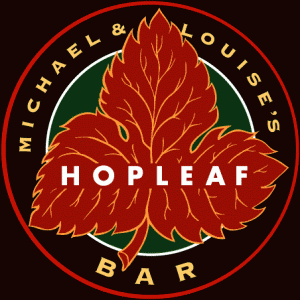
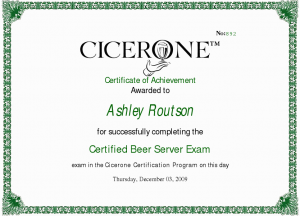
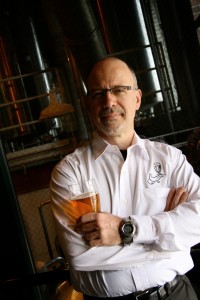
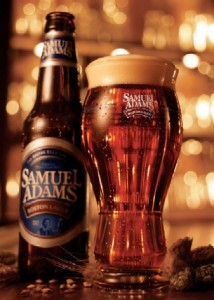
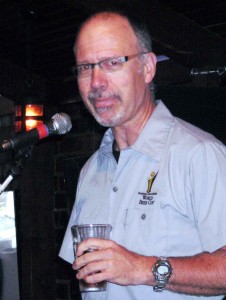
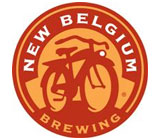
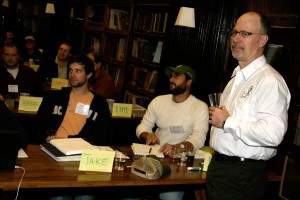

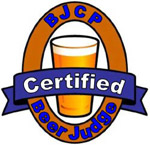

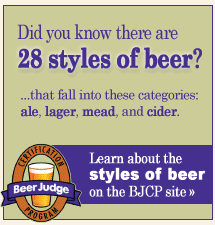
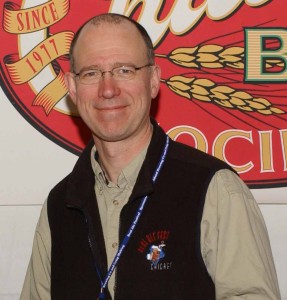
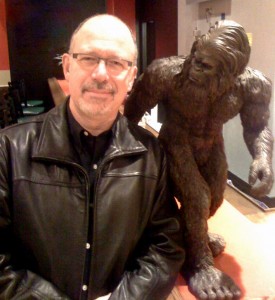

Great job Wenchie!
Pingback: uberVU - social comments
Pingback: Drink With The Wench » Blog Archive » REFLECTING ON 2009
Pingback: Drink With The Wench » Blog Archive » Featured Beer Blogger: JOSH CHRISTIE
Pingback: Over a Pint Episode 22 with Cicerones Rob Landerman and Sam Wynne « Beer Town Austin | Austin Beer
Good read.
Pingback: Recent BABB Blog Posts November 13, 2011 | Bay Area Beer Bloggers
I thoroughly enjoyed learning more about one of the front line fighters who has done so much work to give craft beer the respect that it deserves. Great interview!
I’m retiring from a union rep job 8/14 . I always thought of working Beer sales. I enjoy people and the challenges of sales and the challenges of working with different personalities. I very motivated in all aspects of my life. I’m 61 years old and do not want to stop working. I’m asking your input on how I can get started in the Beer industry and the training that will help me to acquire a position in this industry ?